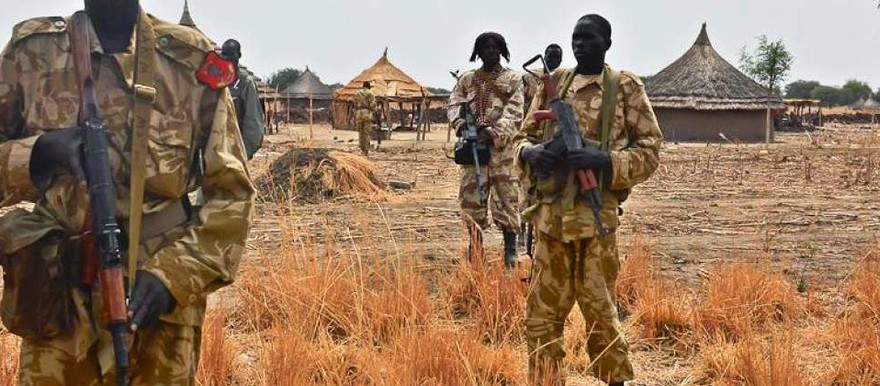South Sudan’s army and rebel forces blamed each other on Sunday for violating a ceasefire hours after it came into effect, fighting that will frustrate international mediators who had pressured both sides to stop the ethnic-fuelled conflict.
A U.N. official confirmed there had been fighting in the area of the flashpoint town of Bentiu, saying shooting came from both sides. Both army and rebels also reported clashes elsewhere.
President Salva Kiir and rebel commander Riek Machar met face to face on Friday to sign the ceasefire deal – the second time the two sides have promised to stop fighting after an accord in January swiftly collapsed.
All fighting was supposed to stop 24 hours after the signing late on Friday.
Clashes erupted in South Sudan in December after months of tensions sparked by Kiir’s decision in July to sack his long time rival Machar from the post of deputy president.
South Sudanese army spokesman Philip Aguer said his forces had been attacked in two positions in oil-producing Unity State, one of them near Bentiu, where an ethnic massacre in April raised worries of a potential genocide.
“They attacked only six hours after the ceasefire came into effect,” Aguer told Reuters, although he said the government’s SPLA army was able to repulse both assaults.
The U.N. official, who asked not to be named until more information was gathered, said there was heavy fighting around Bentiu on Sunday morning but said it later became more sporadic.
In rival accusations, rebel military spokesman Lul Ruai Koang said the army launched attacks in Unity state and Upper Nile state, another oil producing region. He said shelling on Upper Nile rebel positions began a few hours before the ceasefire deadline but continued after it into Sunday morning.
“The latest violations of the agreement to resolve the crisis in South Sudan shows that Kiir is either insincere or not in control of his forces,” he told Reuters.
Western powers call for fighting to stop
Mediators had demanded Kiir and Machar meet for face-to-face talks in Ethiopia this time, rather than leave any ceasefire to negotiators, to obtain their personal commitment to making it last.
The United States and European Union states, which have been pressing hard for a deal, had welcomed Friday’s agreement and called on both leaders to issue immediate orders for a halt to fighting.
Western powers were instrumental in South Sudan gaining independence in 2011 and trumpeted the state’s creation as a policy success.
Washington, which has already slapped sanctions on commanders from each side, warned of further steps if fighting continued. The EU also said it was considering punitive measures on those who committed rights abuses or blocked talks.




